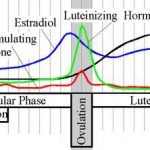Living near the freeway might make the trek to Costco easier, but the cost of that convenience may be the health of your unborn children. A new study of over 81,000 pregnant women living in the Los Angeles area found that exposure to traffic-borne pollution raises the risk of giving birth to a severely premature baby by a whopping 128 percent. The subjects also had up to 42 percent more risk of developing preeclampsia, a type of pregnancy-related high-blood pressure that can cause serious complications. All of the women in the study lived within three kilometers (just under two miles) of a major roadway.
The study paints a dismal picture for the progeny of Angelenos — but those living outside of the heavily polluted LA area also are at risk. A simultaneous study published in Pediatrics followed pregnant women in New York City for the few months before they gave birth. Those mothers exposed to the most pollution gave birth to children who scored consistently lower on IQ tests in early childhood.
Dr. Jun Wu, a lead author of the first study, advises. “Women living close to freeways should be careful and close their windows, or if they’re in the car, close the windows and put the air conditioning on, [and] to filter air coming into the car. It might be a good idea to limit your time near traffic or change when you commute so it’s not during rush hour.”
But a study last year out of Brisbane, Australia, found that rolling up the car windows doesn’t offer much protection — nor does heading to the hills in search of fresh air. The Brisbane study looked at the impact of pollution on fetal size. Researchers reviewed ultrasound scans of 15,000 fetuses prior to birth, measuring head circumference, femur length, and abdominal circumference. The fetal measurements showed a direct relationship to pollution exposure. According to study director Dr. Adrian Barnett, “If the pollution levels were high, the size of the fetus decreased significantly.” Dr. Barnett points out that, “Birth weight is a major predictor of later health; for example, bigger babies have been shown to have higher IQs in childhood and lower risk of cardiovascular disease in adulthood.”
The thing is, unlike Los Angeles, Brisbane isn’t pollution central. In fact, the study included subjects living up to 14 kilometers outside of city limits — a haven for nature lovers and sports enthusiasts. Dr. Barnett points out, “While some people may think there is no air pollution in Brisbane because the air looks so clean, you have to remember that most air pollutants are not visible to the naked eye, people do have a very outdoor lifestyle, and homes are designed to maximize airflow. So although the actual levels of pollution are low, our exposure to whatever is out there is relatively high.”
In other words, opening your windows to the elements, climbing a mountain, or hiking a trail might expose you to plenty of particulate matter — even in relatively unpolluted environs. While it’s true that car, truck, and bus fumes contribute an inordinate amount to air pollution (about 42 percent in urban areas), there are other significant contributors, and you can’t completely avoid them by moving out to the country — airline exhaust, for instance, pesticides from farming operations, coal-fired power plants, factory and mining emissions, etcetera.
In fact, a study last year found a strong link between certain “gases” released through livestock farming and increased infant mortality. Even at low levels, emissions from such sources can do plenty of damage and have been found to contribute to prenatal problems. I’ve written before about the fact that free radicals in particulate matter can travel to the farthest reaches of the earth and persist in the environment forever. Still, you’re much better off minimizing exposure — living far away from crowded roadways and industrial urban areas where pollution levels are off the charts.
If you aren’t pregnant, breathing in car exhaust won’t damage your non-existent fetus, but it sure can damage you. In 2002, the World Health Organization issued a report estimating that pollution directly causes over 600,000 deaths annually, worldwide. The report claims that pollution underlies three percent of all cancers of the respiratory system, as well as one percent of all cardiopulmonary disease. Although those represent small percentages, in terms of numbers, we’re talking about 7.4 million cases of disability annually. And that probably represents a gross underestimate.
A recent study by the European Environment Agency found the number of annual deaths in London caused by airborne particulates to be three times the reported amount, bringing the number of deaths from pollution within city limits to almost 3,000 annually. Plus, the original report claimed that every person living in London could expect to cut about eight months from their life expectancy due to pollution, and that figure too was grossly under-reported.
Tracey Woodruff, who directs the Program on Reproductive Health and the Environment at the University of California, San Francisco, says that “pregnant women should be aware of the risks and advocate for the kinds of [government] actions that reduce overall exposure to air pollution.” Rolling up the windows against the worldwide avalanche of airborne toxins seems a sad and rather lame strategy for both pregnant women and the rest of us, but until citizens and corporations worldwide take action, it’s what we’ve got. That, and air filters, antioxidants, and the Baseline of Health program.
:hc











